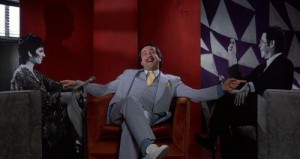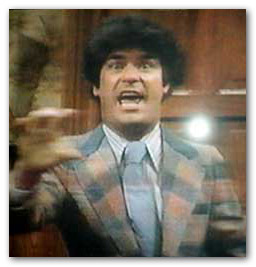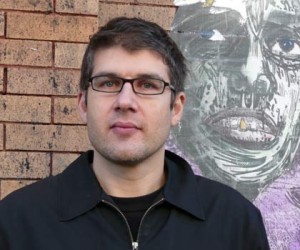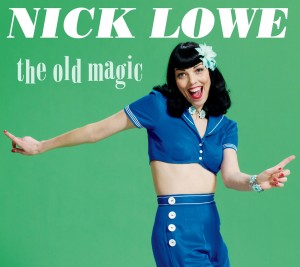As you ponder all those who brought us The Doris Day Show, what are YOU bringing to the Hall?
This All-Star Jam invites you to do your thing.


Sounds of the Hall in roughly 33 1/3 minutes!
In this week’s edition of Saturday Night Shut-In Mr. Moderator needs to keep his mouth shut. Sorry, kids, but this week’s episode is a music-only editon as your host gives his usual ROCKTOBER nasal drip a rest. It was a cool week in the Hall, featuring an interview with critic Simon Reynolds, the pros and cons of Nick Lowe’s latest album, rock’s most over-the-top box sets, an ongoing Last Man Standing that cannot be described without the use of adjectives, and the Internet’s first-ever discussion of rockers we’d most entrust to grill a steak. I’d love to discuss this and other recent happenings with you tonight, but trust me, I’m nothing without my dulcet tones. Instead, enjoy this mix of everything from Simply Saucer to Sleater-Kinney t0 Jon Hassell to Moondog to The Lovin’ Spoonful to Beulah to Charles Mingus. I promise to have my voice back in working order next week, when I broadcast episode 50 “LIVE” from San Franciso!
[audio:https://www.rocktownhall.com/blogs/wp-content/uploads/2011/10/RTH-Saturday-Night-Shut-In-49.mp3|titles=RTH Saturday Night Shut-In, episode 49][Note: The Rock Town Hall feed will enable you to easily download Saturday Night Shut-In episodes to your digital music player. In fact, you can even set your iTunes to search for an automatic download of each week’s podcast.]


(Mod, feel free to find a more suitable place for this tacky, self-promoting plug if you wish. I’m only posting here in this fashion because I actually created the stolzenrock blog with folks like my friends here at RTH in mind.)
I look forward to your comments.
HVB


Simon says, "Be here, now!"
A couple of weeks ago, Mr. Royale and I were able to see one of our favorite music critics, Simon Reynolds, discuss his most recent work, Retromania, and field general questions about music and his other books. The man is well versed in a wide range of musical topics, having written about the Post-Punk era, the “Blissed-Out” era of the late ’80s and early ’90s, rave culture, gender influences in rock, and hip-hop culture. Mr. Royale and I arrived a bit early at the bookstore for the reading and noticed him already there browsing the stacks in the music section. We approached him and started chatting, and he was kind enough to answer some of our nosey questions. For instance, his favorite music writers/books include Griel Marcus and Wompbopalubomp, by Nick Cohn. He got into the music writing business indirectly, first studying history at Oxford but continuing his interest and discourse about music, especially in relation to some of the 20th Century French philosophers. He also likes science fiction, and his wife, who is also a music critic, started out by publishing a Duran Duran fanzine.
A central thesis of Retromania is that there is no innovation in music now and that we are overly fixated in looking backwards and making ironic winks to previous time periods. There are technological advances, but they not used to further music, just make it sound like what has come before. He hates mixes/remixes/mash ups as he feels they don’t offer anything new. He despairs about reunion tours, rock museums, and retrosound. He gave an example that if a new writer wrote in the style of Faulker, walked around dressed like Faulkner, and quoted Faulkner all the time, we would laugh. But when musicians do it, it’s given a pass. However, he admits that he is ambivalent about his theory and wrote the book to engage others in discussion about his perceptions.
After the talk, he agreed to field additional questions from The Hall, including some sent in by my trusty colleagues. I submitted several via email and he promptly wrote back.
Rock Town Hall: I’ve read some interesting research that suggests that half of all humans tend to peak early in their creative/artistic growth, and half are of the “slow and steady wins the race” type. Examples of these two types might include, say, Prince on the one hand and Jackson Pollock on the other. One flamed out with astonishing brilliance fairly early in life, and the other didn’t paint anything of interest until he cracked his personal creative code in his 50s. I think one of the reasons the field of pop music lacks so much creativity is because the prevailing A&R system only recruits young talent—a strategy that virtually guarantees that most pop music artists will be relevant and interesting for only a brief time. I believe the pop music industry is ignoring all the “late creativebloomers”—50% of all potentially great music makers—and I think that most people who are only latently brilliant when young don’t think they’llever “make it” in pop music, so they stop trying. Of course, I understand issues related to sex appeal, spending habits, and so forth are at the root of the “recruit only when young” method, but… I’d be curious to get your thoughts on this.
Simon Reynolds: Hmmm, that is interesting. I don’t know if it connects to my preoccupations in Retromania, though, because a lot of older artists are still recording, either for major labels or in the musical indie leftfield, which is what most of my attention is on—and I don’t particularly hear great breakthroughs coming from the older set! But it’s true that record companies did use to invest in talent long-term more, they had the equivalent of “mid-list” artists as in the publishing world, an artist would be allowed to put out album after album after album. And they developed artists, like Kate Bush, who was very young when she started, was put on a wage, and put up in some kind of house or apartment with a piano for a year or two to develop her thing. EMI saw as a female Pink Floyd or something, a long-term major artist. This kind of development I’m sure still goes on but is more likely to be grooming and dance lessons, and all the other things required to be a transmedia-dominating pop star. And artists tend to get dropped really quickly if they don’t make, which must be crushing to many people who are talented and would bloom later.
RTH: I am having a hard time formulating this question, but if you look at the history or jazz or blues or other forms of music, don’t they all reach a point where they are pretty much “played out,” at least as phenomena with massive audiences, and become niche entertainments and recyclers of the past? What makes us think that rock music is immune to these cycles of growth, evolution, and diminution? I am not suggesting you are trying to make that case, by the way. But there are jazz bands that go around and play the music of various bygone eras, or in the general style(s) of past eras; there are jazz artists striving to create something new that is still part of the tradition, but for the very few people who are interested, etc. Will rock as we (vaguely defined, older people “raised on classic rock”) understand it not go the same route, if it hasn’t already?
SR: Yes, there is a case for the argument that musical genres, or major musical movements—jazz, rock, hip hop, electronic dance—have a kind of life-cycle. First phase is the emergent one, where often the music is considered juvenile or lowly in some way (jazz being connected with lowlife, brothel music). Then it breaks through to wider acceptance and becomes the dominant popular music of its age, influencing everything else that’s going on. Then you have the fragmentation phase, where it is looking for ways to develop and it is itself influenced or even looking for influences: one way is to combine with the more recent popular styles and dance rhythms (in jazz’s case that would the ’70s fusion era, when it combined with rock, funk, etc), another way is various paths of extremism or abstraction (free jazz, fire jazz, non-idiomatic improvisation, etc); there is also another kind of fusion, which is merging with musics from outside the American tradition (in jazz ECM did with various European flavours and world/exotic flavours, also people like Don Cherry did similar kinds of moves). Then the final phase of the music is a kind of classicism—in jazz terms that would be Wynton Marsalis and Lincoln Center and the critic Stanley Crouch, the idea of building on a very strong knowledge of and basis in the past, a return to fundamental principles (so in jazz, according to Marsalis and Crouch, that is “blues” and “swing”). Jazz players stop trying to look trendy (all those ’70s fusion snazzy threads!) and dress in suits and ties again. This kind of neo-classicism in jazz tends to blur into a heritage mindset, where it’s all about the classics, almost like the classical music world idea of repertory, whether it’s old performers wheeled out again onstage or it’s young, very respectful and reverential players playing the classic tunes. And indeed the argument is that jazz is America’s classical music. So there is an emphasis on preservation and history: books, documentaries, museum exhibitions. And even with composers and players making new music, the music teems with ghosts of its earlier glory days. Well you could see similar four-phase narrative unfolding within rock and even in hip hop and rave culture.
RTH: Is there an artist you most regret “not getting” at first who you would eventually dig years after you first had the chance?
Well, no, actually I don’t love the Grateful Dead, but there are plenty of people around that do, and those Deadheads will tell you that Europe ’72 (issued in November 1972) is one of their best albums. The band was arguably it its strongest and Jerry Garcia was still vertical at this stage. As far as live albums go, this triple-LP or two-CD set is pretty good and makes for a quite sufficient introduction to the Dead to mere mortals like me. However, the true adepts are always wanting more grateful death, and even 30 years of trading concert tapes and purchasing all 2,387 Dick’s Picks CDs didn’t quite satisfy their junkie cravings.
Like all good pushers, Grateful Dead Productions and Rhino Records arrived with the goods last month to ease the cold sweats and shakes of these product-starved Deadheads by offering what might be the most mega box set of all time: Europe ’72: The Complete Recordings. Along with books, maps, and other paraphernalia, the massive wooden box consists of 73 CDs documenting 22 complete European concerts. Although I’ve not seen a complete track listing, I assume that means 22 versions of “Truckin'” and “Sugar Magnolia”. Funny me, I though that having only one version of each would be well more than adequate.
Again, like the good pushers they are, GDP and Rhino knew to keep the supply limited and the prices high. The price of the box set was $450 and only 7,200 copies were issued. Is it a surprise to anyone that every single one was sold within 4 days? The pusher guys came to the rescue once again with the recent announcement that the 72 CDs would be available to all without all the limited-edition nonsense. The price for the less-deluxe edition? Still an eye-watering $450.00, bless their rapacious little hearts. If you still can’t sleep at night without one of the full-luxoid packages, they’re now available on eBay with Buy-It-Now prices up to $1,200.00.
There has to be at least one hardcore Deadhead out there in RTH-land. What’s the buzz on the box set? Is it worth the legendary reputation and the equally legendary price? Have you purchased it or are you planning to? Inquiring minds want to know! As for everyone else, what other totally outrageous box sets come to mind?


Rough draft?
One of the hazards with any of KingEd‘s Insta-Reviews is the chance that his gut feelings on a new release will not hold over time. Although Rock Town Hall stands behind even the most bile-filled reviews of our self-appointed King of New Music Reviews, we reserve the right—and believe we owe it to our readers—to occaisionally revisit one of his pieces, such as his recent review of Nick Lowe‘s latest album, and offer consumers a more balanced, clear-headed review that will better reflect the refined tastes of our readers and advertisers. In that spirit, I have taken the past week to let Nick Lowe’s The Old Magic sink in over repeated listens. I hope my review will stand as an alternate point of view for consumers’ consideration.
Nick Lowe, The Old Magic
Rock Town Hall: ♦ ♦ ♦ ♦ ♦ ♦
Up to this point, Nick Lowe’s “mature” solo career has been an incidental affair, something that has surfaced in the interludes between public radio interviews and photo shoots. His previous releases — 1998’s Dig My Mood, 2001’s The Convincer, and 2007’s At My Age — were earnest, respectable efforts that offered their fair share of pleasures but did not establish a distinct or significant new musical identity for Lowe apart from his Jesus of Cool persona. The Old Magic finds Lowe taking a giant step — not away from the shadow of his Rockpile-era works but beyond what that understandably history-bound artist has been able to achieve on record in recent times.